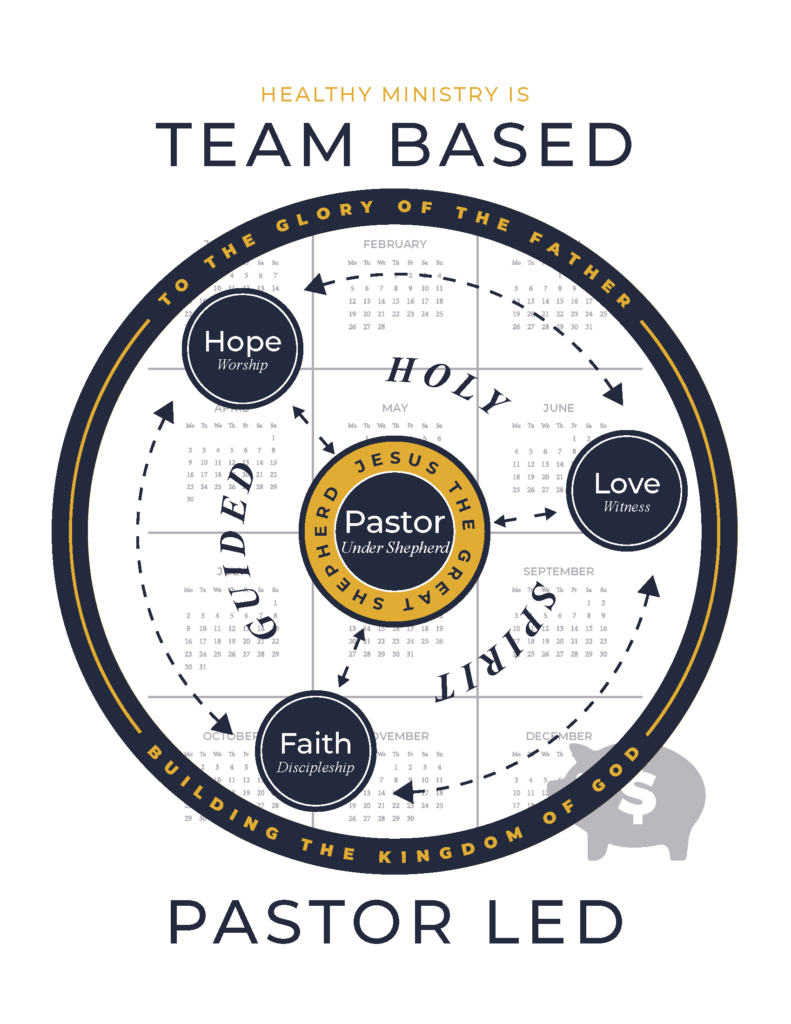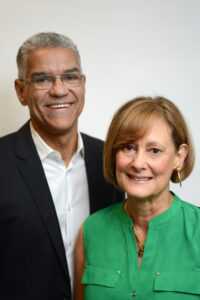Speaking Of Life 3049 | The Jesus Subtext
Jesus was surrounded by his adversaries waiting for him to make a mistake when one of the scribes asked him a question to challenge his authority. Jesus’ response of love and invitation, reveals his heart for us
Speaking Of Life 3049 | The Jesus Subtext
Greg Williams
Have you ever had a conversation in which the primary communication was not the words spoken? Maybe an exchange with an old friend where you say very little to express your relationship? Maybe a conversation with a rival in which looks and posturing were really what was “said”?
The brief exchange Jesus has with the scribe in Mark 12 is similar. The scribes ask Jesus what the greatest commandment is and Jesus responds:
Jesus answered, “The most important is, ‘Hear, O Israel: The Lord our God, the Lord is one. And you shall love the Lord your God with all your heart and with all your soul and with all your mind and with all your strength.’ The second is this: ‘You shall love your neighbor as yourself.’ There is no other commandment greater than these.”
Mark 12:29-31 (ESV)
His answer connects to the central prayer faithful Jews prayed every day; it is called the Shema. But the words unspoken say a lot as well.
At least in Mark, the scribes are portrayed as Jesus’ nemesis. They are constantly harping on his behavior and ultimately are instrumental in causing his death.
And yet in this exchange, the scribe actually agrees with Jesus by saying: “You are right, Teacher…”
The conversation surprisingly takes a sharp turn away from the usual antagonistic tone. He agrees with Jesus quickly—where the subtext in most of their conversations is challenging, suddenly there is agreement.
Jesus’ reaction to this agreement is no less surprising:
And when Jesus saw that he answered wisely, he said to him, “You are not far from the kingdom of God.”
Mark 12:34 (ESV)
The Lord knows just when to stop everything and watch the kingdom leaking through, even through a scribe. This conversation stands out against other similar exchanges because there is pause, there is observation, not just a disagreement or debate.
Jesus sees the change coming through this man and proves that the kingdom welcomes everyone as a matter of the heart. Unlike Israel—who at the time who was shutting non-Jews (Gentiles) out—the gospel movement welcomed all—scribes or otherwise—if that person turned even slightly toward Jesus. It was a matter of faith—not social class, not ethnicity nor heritage, that brought someone to believe and follow Christ.
So this exchange—a surprisingly positive response from a scribe excites Jesus. It’s small moments like these showing how Jesus was transforming the world then and still is today.
I’d like to think this scribe who was “not far” from the kingdom made it all the way across. Perhaps this was the beginning of his journey—a brief, patient discussion with Jesus. The same discussion he has had with you.
I’m Greg Williams, Speaking of Life.
Psalm 146:1-10 • Ruth 1:1-18 • Hebrews 9:11-14 • Mark 12:28-34
The theme this week is being the people of God. Our call to worship Psalm discusses the fleeting quality of life and the permanence of God and God’s people. Ruth 1 tells us about Ruth choosing to identify as one of God’s people and then becoming a great hero of the faith. Mark 12 is an expansion of the Shema, which Jesus called the greatest commandment in the law. Our sermon is on Hebrews 9, discussing Jesus as the end and aim of the Hebrew faith, what it ultimately means to be the people of God.
The Real Footstep in the Hallway
Hebrews 9:11-15
Read, or have someone read Hebrews 9:11-15.
Kids are consummate imitators. They are wonderfully, sometimes manically creative, but they also very much enjoy “being like mommy and daddy.” Costumes of a police officer or a firefighter or a soldier are universally popular in toy stores. If you look at ancient toys from millennia ago in a museum, you will find miniature versions of the chariots and horses ridden by moms and dads and aunts and uncles. We learn how to be human beings by imitating.
There comes a time in every kid’s life when they leave behind these imitations and reach out for the real thing. They find themselves bored and unsatisfied with playing house, so they arrange and rearrange their living space in their room. That gets a little pointless right around the time they leave for college, and then have their dorm room, then an apartment, then a house of their own.
A little boy may have his plastic hammers and Legos until the day he finally joins dad in the garage and feels power tools in his hands. A little girl may have her toy kitchen and Easy Bake oven and one day enter the real kitchen and whip up a meal with mom. Modern kids may cross paths, too, with boys in the kitchen and girls in the workshop! These imitations are just that, imitations, that are meant to someday get us ready for the real thing.
In the midst of that imitation, it often feels like the genuine article. Ask teenagers in the 1960s who might have given each other a ring to “go steady.” They might look back on that with a smile ten years later when they have a wedding ring on, but at the time, nothing is more real.
Feel free to use your own example, or an example of dating/courtship in your culture.

This is part of the point that the author of Hebrews is getting across throughout the book. The trappings and rituals of Judaism were extremely important, given by God himself, but they were only meant to hold things in place until the real thing arrived. Essentially, for us to go back to the temple sacrifices and symbolic actions of Israel would be like setting up a playhouse inside our real house—it would be redundant, a distraction from the real thing.
We are modern people. We have WIFI, drive hybrid cars, eat food made in factories and are part of a scientific and largely secular society. Why should we care about how Jesus and obsolete ancient rituals are connected? What does that have to do with anything?
That’s a fair question—don’t feel bad about asking it! The context of this conversation is far out of historical earshot for us. Yet the Holy Spirit chose to make this seemingly strange narrative a permanent part of Scripture, and therefore we trust it has something to say to us. I’ll try to make it worth your while.
Let’s look closely at this section from Hebrews and see—not how it applies to us right away—but how it applies to Jesus and tells us more about who he is, because then we’ll find out more about ourselves.
What does this passage tell us about Jesus?
- Jesus is Jewish
- Jesus is done
- Jesus is alive
Jesus is Jewish
Jesus was a Jew. He was born into a specific people group with a very strong cultural flavor and with traditions that had been in place for centuries before he came along. It’s important to keep this in mind as we study him and his life.
How else would he fully enter into our world? If God was to come to earth as one of us in Jesus, if he was to truly experience what it meant to be human and take that human experience to perfection, then he had to be part of a specific group, a specific culture, a specific time. If he wasn’t Jewish, he would have been part of another culture with all the idiosyncrasies of that group.
It was all part of the plan. From that first call of Abraham in the desert to Gabriel’s visit to Mary centuries later, it was part of God coming into the human race as a very human savior. That may seem strange to the modern world, which seeks to reduce reality to beakers and spreadsheets, but our boiled-down ideas would seem very strange to the ancient Jews, too!
Yes, Jesus was Jewish. In the original Hebrew his name was Yeshua – Joshua, after the leader that brought them to the Promised Land. The symbolism was rich with that choice!
Jesus’ Jewish heritage is important for unlocking Hebrews, especially these passages that are heavy with priesthood imagery. The discussion here is about how the priests entered the tabernacle, which was the place where God’s presence dwelt. This was a careful, even dangerous enterprise. Commentator Tim Mackie calls it the “hotspot of God’s presence.”
There was an outer court in which the people of Israel worshipped and brought sacrifices. There was an inner court, the Holy Place, in which the priests did the sacrificial work, and finally there was a Holy of Holies, which was where the Ark of the Covenant was held. It was the “hottest” part of the hotspot where God’s presence was the strongest. A high priest could enter that part of the temple only once a year.
This is how Jewish practice was held in place for centuries, and it forms the scaffolding on which Hebrews is built. Serious students of the Word should look at commentaries and Bible dictionaries for help understanding it. But again, it’s part of understanding Jesus and therefore is worth our time.
The writer describes Jesus as high priest, and how his entrance into the temple was different:
But when Christ came as high priest of the good things that are now already here, he went through the greater and more perfect tabernacle that is not made with human hands, that is to say, is not a part of this creation. He did not enter by means of the blood of goats and calves; but he entered the Most Holy Place once for all by his own blood, thus obtaining eternal redemption. (Hebrews 9:11-12)
Here the author of Hebrews is taking a behind-the-scenes look at the redemption story. He describes a “perfect tabernacle not made with human hands,” which is the tabernacle that the literal one pointed to. The sacrifices and important rituals in Jewish practice were never meant to be an end in themselves, but to point to a heavenly reality. The doings of the physical tabernacle were simply the imitation—like the boy with his plastic hammer and the girl with her Easy-Bake oven—of the real thing that came in Christ.
Some commentators believe that Hebrews was written to a group of Jewish Christians who were being pressured by their communities to take up Jewish practice again and return to temple life. The author is showing them that these rituals only pointed to, only foreshadowed the reality they live in in Christ. Again, that would be like setting up a playhouse inside of our real house and trying to live in there.
Jewish practice used a spotless, blemish-free animal to be sacrificed symbolically for sin. Then the blood, which represented life, was sprinkled in several symbolic places in the temple and elsewhere to ritually prepare the priest and the worship space to be in the presence of God. Jesus entered by his own blood. Because he didn’t have a blemish of sin, he could be the sacrifice.
Jesus is done
One of the most striking images in redemptive history is given to us in Matthew:
At that moment the curtain of the temple was torn in two from top to bottom. The earth shook, the rocks split. (Matthew 27:51)
This detail goes by in the middle of a small chaos of natural disasters that happened when Jesus was crucified, and we could almost skip over it, but the symbolism is earth-shattering—or rock-splitting, as the case may be.
This was the thick curtain that separated the Holy Place from the Holy of Holies. The curtain was there to protect the priests from the holiness of God, where one priest could only enter once a year. To go beyond that curtain in the wrong spirit at the wrong time meant death.
And now the curtain is torn.
If we stood before the Holy of Holies today we could walk right in. We are protected by the blood of Jesus, which did the work once and for all. Hebrews talks about the messiness of the sacrificial system—how a flawed priest had to offer sacrifices for himself (chapter 5), and they had to be offered again and again (chapter 10). But now, as Jesus said, “It is finished” (John 19:30).
Jesus is done. His sacrifice was perfect and was the end that all the other symbolic sacrifices pointed to.
Here is another analogy that might help. If you’ve ever truly, deeply forgiven someone, you know that initially it hurts. Your thirst for vengeance goes unquenched; your “right” to payback is forfeited. In Jesus, God took that vengeance and payback into himself. He took the consequences of our sins on himself instead of rightfully inflicting it on us. The ugliness of the sacrificial system pointed to that great pain which Jesus would bear in the crucifixion. And the good news is it didn’t defeat him.
Jesus is alive
How much more, then, will the blood of Christ, who through the eternal Spirit offered himself unblemished to God, cleanse our consciences from acts that lead to death, so that we may serve the living God! (Hebrews 9:14)
It’s been said before: God completely loves you as you are without reservation, and he loves you too much to leave you that way. Jesus didn’t only knock out sin and leave us at some theological point zero—he didn’t just die and that was the end. He rose again, undefeated by the worst our sin could throw at him. Death was the ultimate consequence of sin, and Jesus defeated even that. The resurrection life broke through into the world, and he’s given some of that life to us, even in our time on earth.
“I have come that they may have life, and that they may have it more abundantly” (John 10:10), he said, not only talking to us about a blissful afterlife, but fully living here and now. Eternal life begins now—in knowing Jesus and putting away what the author here calls “acts that lead to death.”
The discussion of temples and sacrifices and atonement may get a little abstract for us sometimes. Theology can sometimes do that. We can think of it as some kind of complicated life insurance policy—there when you need it, interesting in passing, largely academic.
But it was never meant to be that way. Knowing the living Jesus changes who we are and renovates our lives with his true life, transforming us in every moment. C.S. Lewis, describing the Church of England in the middle of the 20th century which was very enthralled with its rituals and pomp, writes about meeting with God:
There comes a moment when the children who have been playing at burglars hush suddenly: was that a real footstep in the hall? There comes a moment when people who have been dabbling in religion (‘Man’s search for God!’) suddenly draw back. Supposing we really found Him? We never meant it to come to that! Worse still, supposing He had found us?” (C.S. Lewis, Miracles)
And so we were blessed by those who kept the rituals in place for the centuries leading up to Christ. They kept the faith; they did what they knew. But with Christ came the reality all the ritual pointed to—the real footstep in the hall. And now we can never go back.
Questions for sermon: “The Real Footstep in the Hallway”
- Have you ever seen children play imitation games? Have you seen them move on from these games to the real thing?
- What does it mean that Jesus is done once-for-all with our sin? How does that affect our everyday lives?
- What does it mean that eternal life begins now? How do we embrace the life described in John 10:10?
Questions for Speaking of Life: “The Jesus Subtext”
- Have you ever been in or seen a conversation in which what was NOT said was the real communication going on?
- In this brief exchange Jesus and the scribe, usually opponents in Mark, share a moment of mutual respect. What does this out-of-sync episode tell us about who Jesus is and what matters to him?
- Do you know someone who, although not a Christian yet, seems “not far from the kingdom of God”? How do you show the Jesus subtext of kindness and patience with this person as God draws them toward himself?
Quote to ponder:
“Why do we marry, why take friends and lovers? Why give ourselves to music, painting, chemistry or cooking? Out of simple delight in the resident goodness of creation, of course; but out of more than that, too. Half earth’s gorgeousness lies hidden in the glimpsed city it longs to become.” ~Robert Farrar Capon





 By Bill Hall, National Director, Canada
By Bill Hall, National Director, Canada
 By Tim Sitterley, US Regional Director, West
By Tim Sitterley, US Regional Director, West
 By Cara Garrity, Development Coordinator, US
By Cara Garrity, Development Coordinator, US








